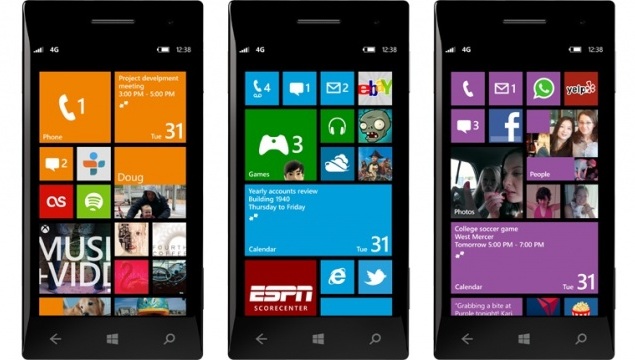Microsoft encouraging Android users to 'Switch to Windows Phone' with new tool
Advertisement

With an intent to attract more Android users, Microsoft is releasing a "Switch to Windows Phone" app for Android next week.
According to a report by NeoWin, the app will allow Android users to find Windows Phone equivalents of their commonly used apps in addition to third party substitutes for apps that are officially not present on Windows Phone. Microsoft has partnered with third-party developer Quixey, which is an app search engine, to deploy the service in the app. It essentially uses a cloud storage service to store a record of the user's Android apps, while a Windows Phone version of the app uses the list to find similar apps on Windows Phone store, offering users app listings on their Windows Phone.
Update: An earlier version of this article mentioned that the service uses Microsoft Skydrive cloud storage for storing the list of apps. A Quixey spokesperson informed us that was not the case.
A Quixey spokesperson told the online publication that the app will release sometime next week and that the company worked closely with the Windows Phone team for developing the app. The report also mentions that currently there are no plans to release the tool for iOS.
While this move is a step towards changing the perception that Windows Phone is lagging behind when it comes to the app ecosystem, we're not sure if it would actually make Android users switch to Windows Phone as it doesn't replicate the actual Windows Phone experience. It's not the first time though that Microsoft has made an app for users of other mobile platforms to lure them. A Windows Phone experience app was built for Symbian users when Nokia transitioned from Symbian to Windows Phone.
While the move is a constructive step in attracting more users from Android, the Microsoft Windows Phone team had earlier done a #DroidRage campaign on Twitter in December 2012, encouraging users to share their stories related to malware on their Android smartphones. In return, Microsoft promised "get-well presents" to the best/ worst stories. While the campaign received some genuine responses, it wasn't long before it backfired on Microsoft, as people started sharing their horror stories related to Windows Phone, tagging them with #WindowsRage.
According to a report by NeoWin, the app will allow Android users to find Windows Phone equivalents of their commonly used apps in addition to third party substitutes for apps that are officially not present on Windows Phone. Microsoft has partnered with third-party developer Quixey, which is an app search engine, to deploy the service in the app. It essentially uses a cloud storage service to store a record of the user's Android apps, while a Windows Phone version of the app uses the list to find similar apps on Windows Phone store, offering users app listings on their Windows Phone.
Update: An earlier version of this article mentioned that the service uses Microsoft Skydrive cloud storage for storing the list of apps. A Quixey spokesperson informed us that was not the case.
A Quixey spokesperson told the online publication that the app will release sometime next week and that the company worked closely with the Windows Phone team for developing the app. The report also mentions that currently there are no plans to release the tool for iOS.
While this move is a step towards changing the perception that Windows Phone is lagging behind when it comes to the app ecosystem, we're not sure if it would actually make Android users switch to Windows Phone as it doesn't replicate the actual Windows Phone experience. It's not the first time though that Microsoft has made an app for users of other mobile platforms to lure them. A Windows Phone experience app was built for Symbian users when Nokia transitioned from Symbian to Windows Phone.
While the move is a constructive step in attracting more users from Android, the Microsoft Windows Phone team had earlier done a #DroidRage campaign on Twitter in December 2012, encouraging users to share their stories related to malware on their Android smartphones. In return, Microsoft promised "get-well presents" to the best/ worst stories. While the campaign received some genuine responses, it wasn't long before it backfired on Microsoft, as people started sharing their horror stories related to Windows Phone, tagging them with #WindowsRage.
For the latest tech news and reviews, follow Gadgets 360 on X, Facebook, WhatsApp, Threads and Google News. For the latest videos on gadgets and tech, subscribe to our YouTube channel. If you want to know everything about top influencers, follow our in-house Who'sThat360 on Instagram and YouTube.
Advertisement
